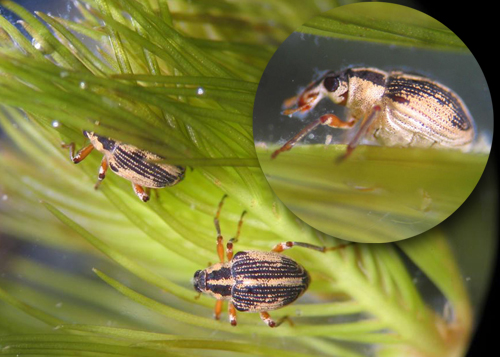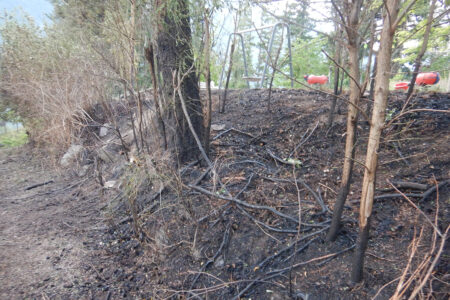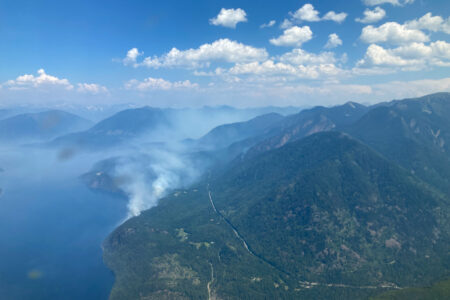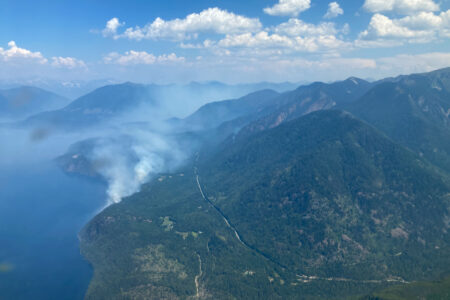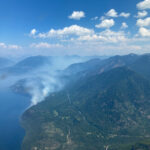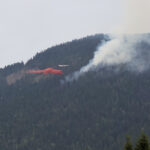Weevils of all stages found in Christina Lake
The Regional District Kootenay Boundary (RDKB) is one step closer to their weevil rearing project.
Late last month a dive team from Enviro Science Incorporated, a company based out of Ohio, spent several days looking for the the Milfoil Weevil in Christina Lake.
Not only did they find the weevil, which is a great way to control the invasive and alien Eurasian Milfoil, they found weevils in all stages of it’s life cycle, which is great news, said RDKB Area C director Grace McGregor.
However, McGregor is cautiously optimistic over the news. While weevils were found, a DNA test is being conducted by the province over the next month to determine if the weevils found are the right kind of weevils, said McGregor.
“It looked good to find different stages of the weevil,” said McGregor. “If we’d only found the odd one it means they’re not breeding. If you find all stages it tells you they are breeding in this lake … And if we introduce more into the lake we’re not introducing something that isn’t already happening here.”
There are many kinds of weevils, but the one the dive team wants is called, in common terms, the Milfoil Weevil. This weevil is an enthusiastic milfoil eater.
“I’m excited,” said Brenda LaCroix, Christina Lake Stewardship Society (CLSS) coordinator and project manager. “I was always confident it would be there.”
LaCroix and the CLSS has been working alongside the RDKB in controlling the invasive milfoil and exploring alternative ways of getting it out of the lake.
Right now the invasive weed, which if left unchecked would take over the waterways, is being hand-picked by a dive team funded by taxpayers dollars through the RDKB. This year the team’s efforts were doubled — each team works seven days a week with one overlapping day, said McGregor. The dive team costs tax payers $300,000 this year, double from last year.
“We’ve got a bit further this year with two crews,” said LaCroix.
“They are picking one heck of a lot of weeds,” agreed McGregor. “The results of two dive teams is just phenomenal.”
McGregor said the team is being very selective in removing the weeds right now because they don’t want to disturb any weevils that are naturally occuring there. Weevils are smaller than a grain of rice, so can be difficult to detect.
What the RDKB hopes will happen is that the weevil is determined to be the right kind and then they can move forward with their plans to rear and release more into the lake, thereby reducing the milfoil naturally and eliminating he need for a dive team to remove the weed.
“Our target is to get on board for next season,” said McGregor.
If the weevils aren’t the right kind, then the process of getting the necessary species in would be more difficult, said McGregor.
To view the progress of the milfoil dive team visit the RDKB website at : http://www.rdkb.com/Services/EnvironmentalServices/EurasianMilfoil/TracktheMilfoilBoat.aspx


